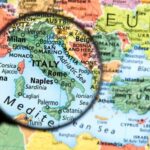Are you planning a trip to Italy but unsure about the current travel restrictions in place? With the ongoing pandemic, it’s important to stay informed about the latest guidelines before making any travel plans. In this article, we will provide you with all the essential information you need to know about traveling to Italy during restrictions.
As the world continues to navigate through the challenges posed by COVID-19, several countries have implemented travel restrictions to ensure public safety. Italy, known for its rich history, stunning landscapes, and delectable cuisine, has also imposed certain regulations for visitors entering the country. From quarantine mandates to testing requirements, there are various measures in place that travelers must be aware of before embarking on their journey.
In this comprehensive guide, we will walk you through the current travel restrictions in Italy and how to navigate quarantine and testing requirements. We will also provide insights into what to expect at the airport and explore open attractions and activities. Additionally, we’ll offer tips for safe and responsible travel as well as discuss the local health and safety regulations.
Lastly, we’ll take a look at anticipated changes and updates regarding the future of traveling to Italy amidst these restrictions. So, whether you’re planning a leisurely vacation or essential travel, read on to stay informed about traveling to Italy during these unprecedented times.
Current Travel Restrictions in Italy
Italy has implemented strict travel restrictions in response to the ongoing global pandemic. These measures are essential for managing the spread of COVID-19 and protecting the health of residents and visitors alike. As a result, it is crucial for anyone considering travel to Italy to be well-informed about the current restrictions in place.
COVID-19 Testing Requirements
Travelers arriving in Italy from certain countries are required to present a negative COVID-19 test result, taken within a specific timeframe before their departure. This requirement helps to identify and prevent the spread of the virus across international borders. It’s important for travelers to research and understand the testing requirements before making any travel arrangements.
Quarantine Mandates
In addition to testing requirements, Italy may also impose quarantine mandates for incoming travelers. The duration of quarantine can vary based on factors such as origin country, vaccination status, and recent travel history. It is crucial for travelers to be prepared for the possibility of mandatory quarantine upon arrival in Italy.
Vaccine Passports and Health Certificates
As part of Italy’s efforts to manage travel during the pandemic, vaccine passports or health certificates may be required for entry into certain venues or activities within the country. Travelers should familiarize themselves with any such requirements and ensure that they have the necessary documentation available when visiting public spaces or participating in events.
It is essential for anyone planning to visit Italy to stay updated on the latest travel restrictions and requirements, as these measures may change in response to developments in the global health situation. By being informed and prepared, travelers can navigate these restrictions with greater ease and contribute to safer travels for themselves and those around them.
How to Navigate Quarantine and Testing Requirements
Traveling to Italy during restrictions can be a daunting task, especially with the necessary quarantine and testing requirements in place. However, understanding the protocols and knowing how to navigate them can make your trip smoother and more enjoyable. Here are some tips on how to navigate quarantine and testing requirements when traveling to Italy:
1. Research the current travel restrictions: Before embarking on your journey, it’s crucial to stay updated on the latest travel restrictions in Italy. Check for any changes or updates regarding quarantine and testing requirements, as these can vary depending on your country of origin.
2. Get tested before departure: Many countries require travelers to present a negative COVID-19 test result before entering Italy. Be sure to schedule a test within the required timeframe and obtain the necessary documentation to show at the airport.
3. Understand the quarantine protocols: In some cases, travelers may be required to quarantine upon arrival in Italy, especially if they are arriving from high-risk areas. Familiarize yourself with the duration and guidelines for quarantine, as well as any exemptions that may apply.
4. Consider travel insurance: Given the unpredictable nature of travel during these times, it’s wise to invest in comprehensive travel insurance that covers cancellations, medical emergencies, and other unforeseen circumstances related to COVID-19.
By following these guidelines and being prepared for any potential challenges, you can navigate quarantine and testing requirements when traveling to Italy with confidence and peace of mind. Remember that staying informed and adhering to regulations is essential for a safe and responsible travel experience amidst the current restrictions.
Traveling to Italy
When traveling to Italy during restrictions, it is crucial to be aware of what to expect upon arrival at the airport. As of now, Italy has implemented specific travel restrictions in response to the ongoing global pandemic. Travelers must adhere to these regulations to ensure a smooth entry into the country.
Upon arrival at an Italian airport, all travelers are required to fill out a self-declaration form, providing information about their recent travel history and current health status. In addition, passengers are subject to temperature screening and may be asked to undergo COVID-19 testing. It is important for travelers to familiarize themselves with these protocols and be prepared for potential delays as authorities work diligently to ensure public safety.
Furthermore, it is essential for visitors to stay updated on any changes or updates regarding travel regulations in Italy. The situation with restrictions travel Italy is dynamic and may continue to evolve based on the current state of the pandemic. Therefore, travelers should regularly check official government websites and consult with their airlines for the latest information before embarking on their journey.
| Travel Restriction Protocols | Expectations |
|---|---|
| Self-declaration form | Filling out necessary health and travel information |
| Temperature screening | Potential requirement for COVID-19 testing |
| Stay updated on changes | Regularly check official government websites and airline notifications |
Exploring Italy
Italy is a country known for its rich history, stunning architecture, and beautiful landscapes. Even with current travel restrictions in place, there are still a number of attractions and activities that are open to travelers in Italy. Whether you’re interested in exploring ancient ruins, visiting world-class museums, or simply taking in the picturesque scenery, there are plenty of options to enjoy during your visit.
Here are some open attractions and activities to consider when traveling to Italy:
- Ancient Ruins: Italy is home to some of the most well-preserved ancient ruins in the world. Sites like the Colosseum in Rome, the ruins of Pompeii near Naples, and the archaeological sites in Sicily offer visitors a glimpse into Italy’s fascinating past.
- Museums and Art Galleries: While some indoor attractions may have capacity limits or require advance reservations, many museums and art galleries throughout Italy are open to the public. From the Uffizi Gallery in Florence to the Vatican Museums in Rome, there is no shortage of renowned cultural institutions to explore.
- Outdoor Recreation: Italy’s diverse landscapes provide ample opportunities for outdoor recreation. Whether you’re interested in hiking along the Amalfi Coast, cycling through Tuscany’s countryside, or relaxing on the beaches of Sardinia, there are countless ways to enjoy Italy’s natural beauty.
As you plan your trip to Italy, be sure to check local guidelines and restrictions for any specific attractions or activities you hope to visit. Keep in mind that these regulations may change as the situation evolves, so staying informed will be crucial for a smooth and enjoyable travel experience amidst current travel restrictions in Italy.
Tips for Safe and Responsible Travel in Italy
Traveling to Italy during the current restrictions requires careful planning and consideration for the health and safety of yourself and others. As you prepare for your trip, it’s important to be aware of the guidelines set by Italian authorities to ensure a smooth and responsible travel experience.
Follow Local Health Guidelines
Before traveling to Italy, familiarize yourself with local health guidelines and regulations to prevent the spread of COVID-19. This includes wearing masks in public spaces, practicing social distancing, and following any specific rules put in place by the Italian government or individual regions.
Respect Cultural Norms
While it’s essential to adhere to health and safety measures, it’s also crucial to respect cultural norms. Be mindful of Italian customs and traditions, such as greeting others with a friendly “ciao” or observing local dining etiquette. By showing respect for the host country’s culture, you can contribute to a positive travel experience for everyone.
Stay Informed About Updates
As travel restrictions and regulations are subject to change, it’s vital to stay informed about updates from reliable sources. Keep abreast of any developments in restrictions on travel Italy, quarantine requirements, or entry regulations. This will help you adjust your plans accordingly and minimize any disruptions during your trip.
Understanding the Local Health and Safety Regulations
Traveling to Italy during the COVID-19 pandemic requires a clear understanding of the local health and safety regulations in place to protect both residents and visitors. Italy has implemented various measures to contain the spread of the virus, and it is crucial for travelers to adhere to these regulations to ensure a safe and enjoyable experience. Understanding the local health and safety regulations is essential for anyone planning a trip to Italy amidst travel restrictions.
One of the primary health and safety regulations in Italy is the mandatory use of face masks in public spaces. This includes indoor areas such as shops, restaurants, and public transportation, as well as outdoor settings where social distancing may be challenging. Additionally, travelers should expect temperature checks at airports, train stations, and other key transit points. It’s important to comply with these measures and follow any additional guidelines provided by local authorities.
In response to the ongoing pandemic, Italy has also implemented capacity limits in public places such as museums, restaurants, and tourist attractions. Visitors should be prepared for potential restrictions on crowd sizes and reservations requirements for popular sites. Adhering to these regulations not only ensures compliance with local laws but also contributes to the overall efforts of protecting public health in Italy.
| Health & Safety Regulation | Requirement |
|---|---|
| Face Masks | Mandatory use in public spaces |
| Temperature Checks | Conducted at key transit points |
| Capacity Limits | Restrictions on crowd sizes at public places |
The Future of Traveling to Italy
In conclusion, as Italy continues to navigate the challenges posed by the global pandemic, the future of traveling to Italy will likely see a number of changes and updates. With the current travel restrictions in Italy emphasizing the importance of adhering to quarantine and testing requirements, it is important for travelers to stay informed about any developments and updates regarding these regulations.
While navigating these restrictions may seem daunting, it is essential for ensuring a safe and responsible travel experience in Italy.
As the world begins to adapt to new norms, including health and safety regulations, it is anticipated that traveling to Italy will involve a greater emphasis on implementing measures to protect public health. This might include stricter protocols at airports and heightened screening procedures. Travelers should stay informed about any changes in entry requirements, such as vaccination mandates or additional testing measures.
Despite these anticipated changes, visitors can still look forward to open attractions and activities throughout Italy. By following local health and safety regulations and being mindful of their impact on host communities, travelers can continue to explore all that Italy has to offer while contributing to a more sustainable tourism industry. With careful planning and responsible behavior, travelers can make the most of their experiences in Italy while respecting the guidelines put in place for public health and safety.
Frequently Asked Questions
Are There Any Travel Restrictions to Italy?
Currently, Italy has travel restrictions in place due to the COVID-19 pandemic. Travelers from some countries may be required to quarantine upon arrival, and non-essential travel is discouraged. It’s important for travelers to check the latest restrictions before planning a trip to Italy.
What Is Required for a US Citizen to Visit Italy?
For a US citizen to visit Italy, a few things are required. First, they need a valid US passport that is not set to expire within six months of their planned departure date.
Additionally, they may need a visa depending on the purpose and length of their stay in Italy. Travelers should also be aware of any current travel restrictions or entry requirements due to COVID-19.
What Can You Not Bring to Italy?
There are certain items that travelers should not bring to Italy. These include drugs or medication without proper documentation, counterfeit goods, large amounts of cash without declaring it at customs, and certain types of food products such as meat and dairy (unless from within the EU).
It’s important for travelers to familiarize themselves with Italy’s import regulations before packing for their trip.

I’m a passionate traveler, writer, and Italophile. My fascination with Italy’s history, art, and culture has led me on countless adventures across the Italian landscape. Through “I Live Italy,” I share my love for this extraordinary country and aims to inspire others to explore its boundless beauty.





